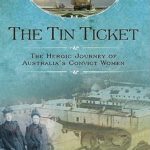It’s been a banner year around here for books about prostitutes. First Best Friend’s mother sends me Pistol Packin’ Madams, and then my own mother gives me Sin in the Second City: Madams, Ministers, Playboys, and the Battle for America’s Soul.
There are several conclusions I could draw from this, but it’s probably best to let it lie. 🙂
Joking aside, I greatly enjoyed both books; the former gives great short summaries of many of the most famous Madams of the Old West, and the latter transitions you smoothly into the early 20th century. To Chicago, Illinois, to be exact, and the famed red light district known as the Levee.
A story of two sisters…
When Ada and Minna Everleigh arrived in Chicago in late 1899, they were already well-versed in the running of a turn-of-the-century brothel. But their goal was to do it better than anyone else.
The sisters knew that their club was going to be something special, with only the best courtesans, food, conversation, drink, and clientele. Since they believed prostitution to be a “necessary evil,” why not elevate the profession as much as possible, and make a great living in the process?
Sin in the Second City tells the story of these two intrepid ladies and their exclusive Everleigh Club, arguably the most famous and profitable brothel in American history. Author Karen Abbott uses extensive primary sources, quotes from diaries, letters, newspapers, and interviews of descendants of those who knew Ada and Minna in their later years.
…and so much more
But that’s not all this book is about; as the title suggests, it’s also about “the battle for America’s soul.” It’s about the men and women who protested the existence of brothels and prostitution, and who used the specter of “white slavery” to force complacent politicians to begin cracking down on brothels across the city.
It’s about the Mann Act, passed in 1910, whose purpose was to prevent white slavery and the transportation of females across state lines for “immoral purposes.” This law is still in place today, although its language has been more clearly defined.
Same story, two perspectives
This book certainly gets you thinking, because the arguments of both sides are equally valid. Those against prostitution wanted it erased because it can transmit diseases, tear apart families, cause scandals, and is definitely not a safe or healthy profession. But Ada and Minna were not thugs, or criminals, or horrible people by any stretch of the imagination. They recognized that prostitution was not the ideal thing, but they wanted to make it as legitimate, controlled, respectable, and safe as possible, for everyone involved.
But to borrow a rather…earthy quote from a comedian, “Polish a turd, it’s still a turd.” Those against prostitution argued that no matter how fancy you made it, it was still wrong. It was eventually this group that “won” the fight against the world’s oldest profession, but I argue (and so would Ada and Minna) that they really only succeeded in driving it further underground, where it’s impossible to regulate it or protect those who end up in its grasp.
I’m so glad I picked up Sin in the Second City. I highly recommend it.
Kick-ass Quotes
“ ‘There are no good girls gone bad, just bad girls found out.’ – Mae West.” (p. 29)
“A new branch within the U.S. Department of Justice called the Bureau of Investigation—the ‘Federal’ to be added later—would be charged with tracking down Mann Act violations. The Bureau, at this point, employed only twenty-three agents, but James Mann’s law launched its transformation from a small office concerned with miscellaneous minor crimes to the government’s most recognizable and powerful legal arm.” (p. 207)







I have Sin in the Second City sitting on the shelves, so I’m glad to hear it’s a good read!
Definitely a great read. It was different than I was expecting. I guess I thought’d it be more dry, a series of facts and dates. But the author turned it into a narrative, which made it even more interesting. I’ll keep an eye out for your review. 🙂